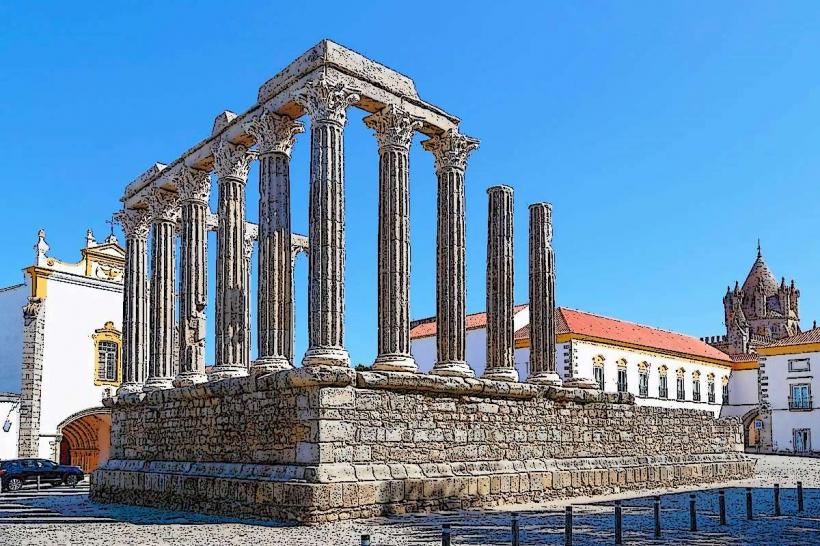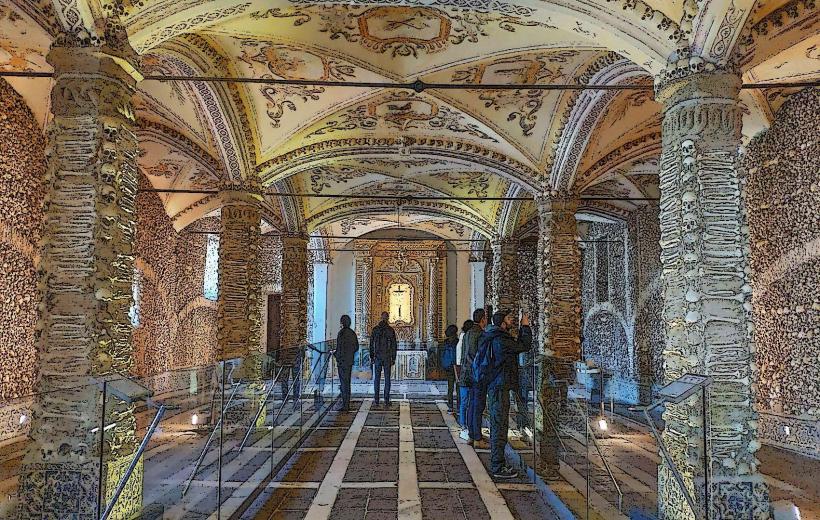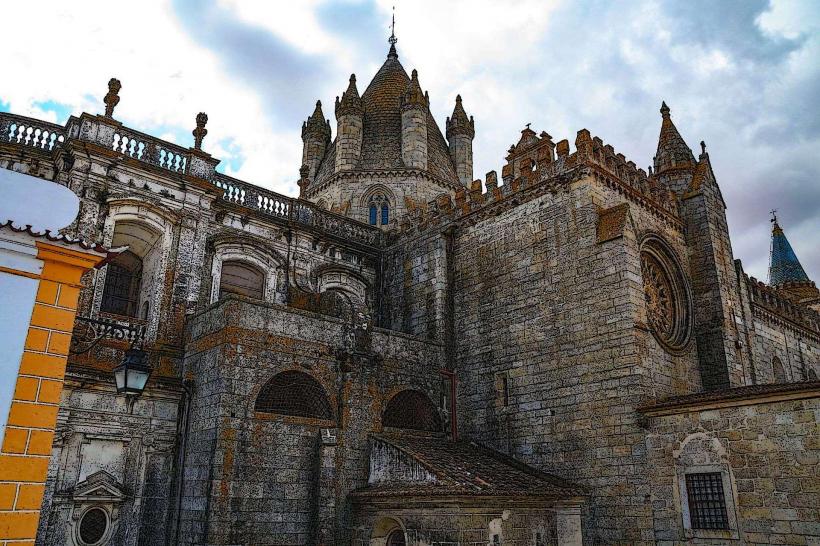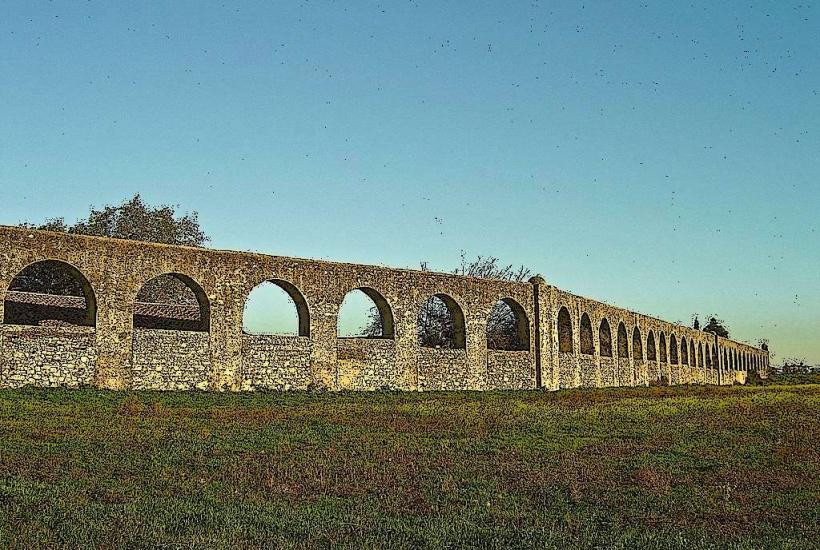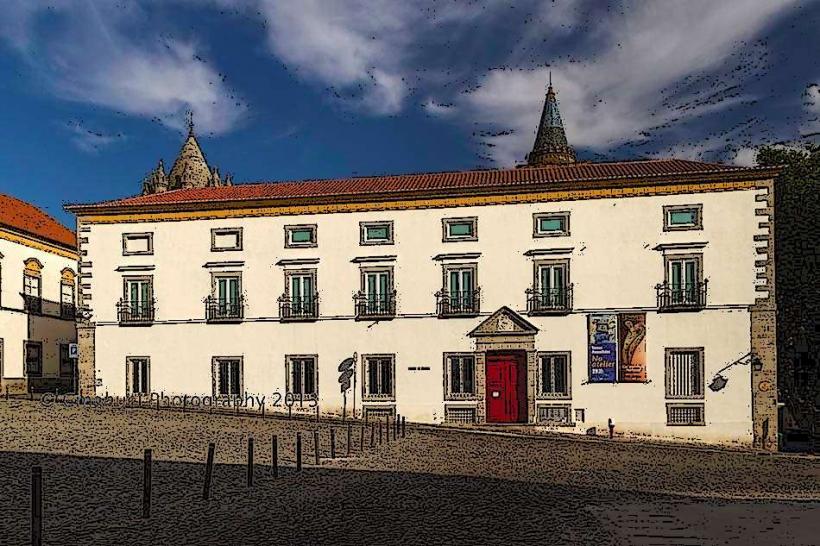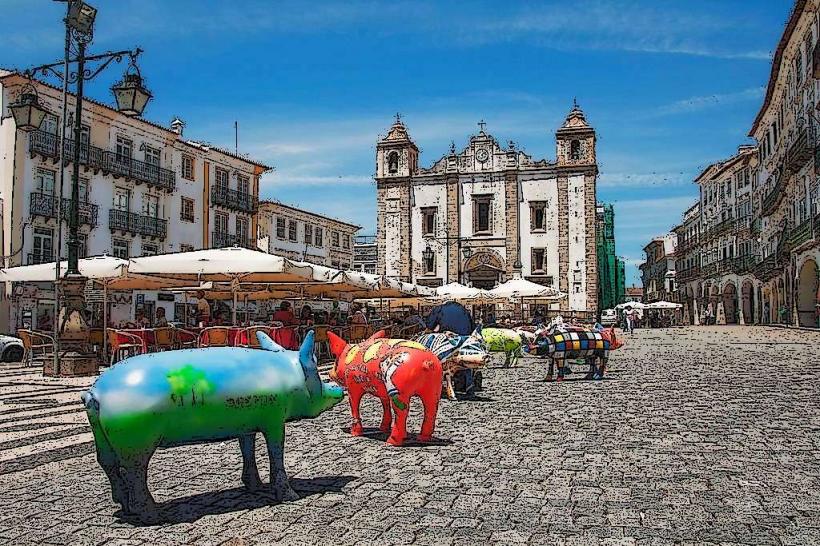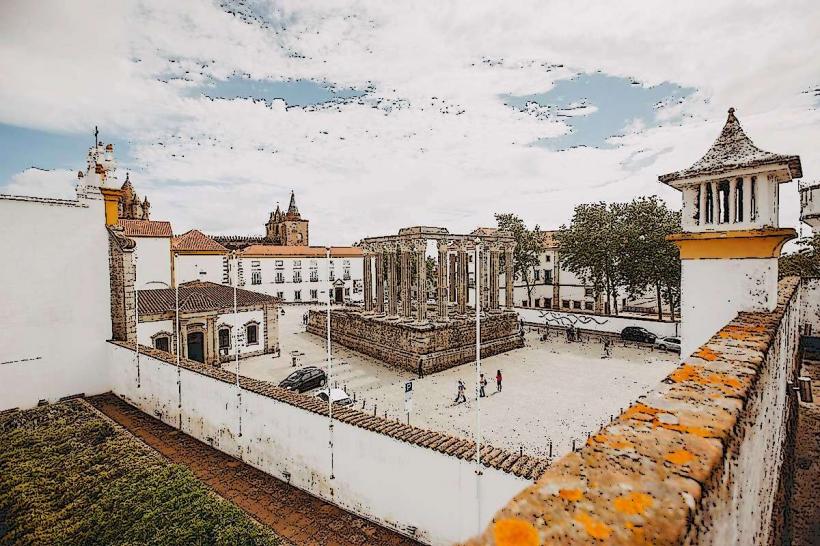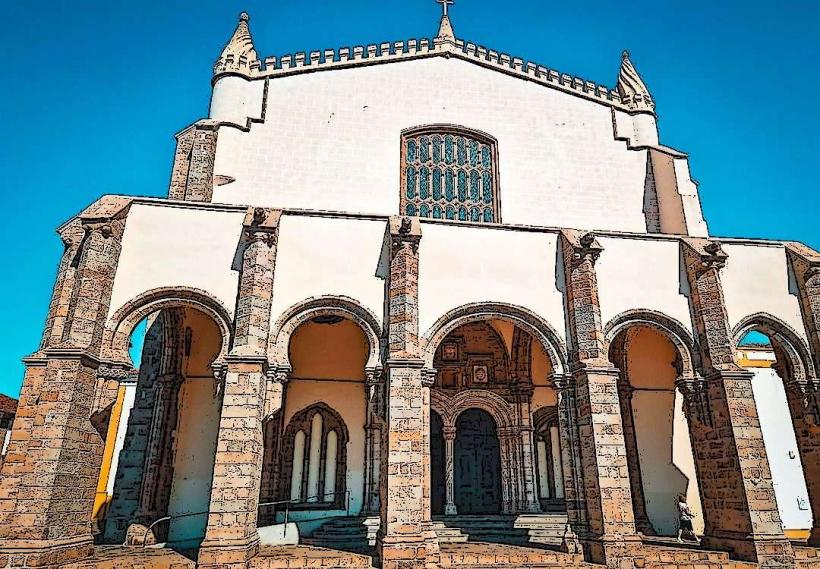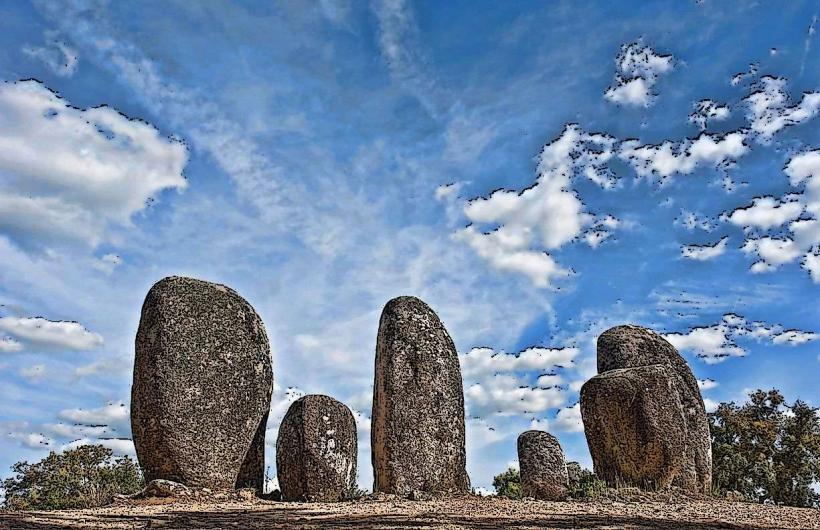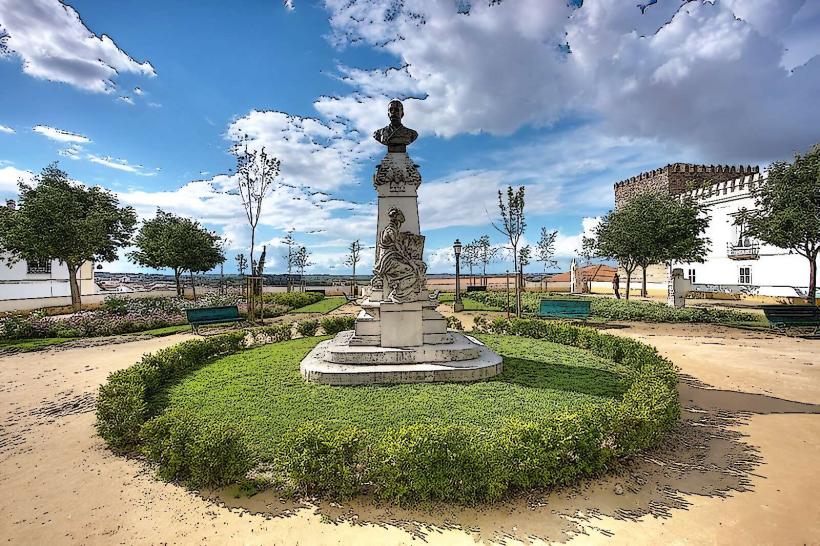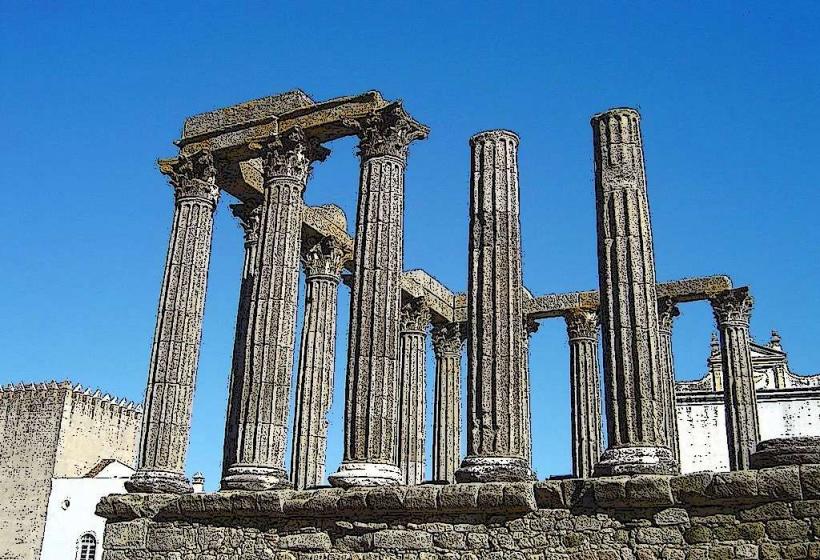Information
Landmark: University of ÉvoraCity: Evora
Country: Portugal
Continent: Europe
University of Évora, Evora, Portugal, Europe
The University of Évora (Universidade de Évora), founded in 1559, is one of Portugal's oldest and most prestigious universities. Located in the historic city of Évora, it reflects the city’s intellectual legacy and plays a significant role in Portuguese higher education. Originally established as a Jesuit institution, the university is renowned for its beautiful campus, which blends historical architecture with modern facilities and a strong academic tradition.
1. Historical Background
- The University of Évora was founded by Cardinal Henry (later King Henry of Portugal) and was formally recognized by Pope Paul IV. It was established as the second university in Portugal, after the University of Coimbra, making it a key center for higher learning and Jesuit education.
- Operated by the Jesuit Order, the university emphasized classical education, philosophy, theology, and the sciences. Its Jesuit roots shaped its curriculum, which focused on rigorous intellectual training aligned with Catholic teachings.
- In 1759, following the expulsion of the Jesuits by the Marquis of Pombal, the university was closed by royal decree. It remained inactive for over two centuries until it was reestablished in 1973, reopening with a secular approach and offering a modern curriculum.
2. Architectural Highlights and Campus
- Main Building (Colégio do Espírito Santo): The university’s main building, Colégio do Espírito Santo (College of the Holy Spirit), is an architectural masterpiece with roots in the Renaissance style. This building served as the heart of the original Jesuit college and is renowned for its historical and artistic significance.
- Cloisters: The campus features several beautiful cloisters, including the Cloister of Espírito Santo, where arched walkways surround peaceful courtyards. These cloisters are adorned with traditional Portuguese azulejos (blue-and-white ceramic tiles) that depict allegorical and educational scenes, reflecting the Jesuit emphasis on classical knowledge.
- Lecture Halls and Classrooms: Many classrooms and lecture halls are located in historical spaces, preserving their original architectural details. The Sala dos Atos (Hall of Acts) is particularly notable for its ornate wooden ceiling and decorative tiles, where graduation and other formal ceremonies are held.
- Library: The university’s library, housed in the former Jesuit chapel, contains a vast collection of rare books, manuscripts, and academic works. Its design blends Baroque and Mannerist elements, with wooden shelves, painted ceilings, and intricate details that evoke its historical heritage.
3. Academic Programs and Modern Role
- Today, the University of Évora offers a wide range of academic programs across multiple disciplines, including humanities, social sciences, natural sciences, engineering, and arts. Its curriculum has expanded from its Jesuit roots to incorporate a broad, modern perspective on education.
- The university is recognized for its research in areas like agriculture, environmental sciences, and renewable energy, especially focusing on the Alentejo region’s specific needs and development.
- As a member of various international academic networks, the University of Évora collaborates with institutions worldwide, attracting both Portuguese and international students. It is committed to preserving Portugal’s cultural and intellectual traditions while fostering innovation and global engagement.
4. Azulejos and Art
- The University of Évora is celebrated for its decorative azulejos, which are found throughout its buildings and cloisters. These tiles feature intricate blue-and-white designs depicting historical scenes, classical figures, and allegories that align with the Jesuit educational philosophy.
- The use of azulejos gives the campus a unique aesthetic, combining artistic beauty with historical narrative, providing a visual journey through Portugal's intellectual and cultural history.
- The artistic emphasis also extends to public art and sculpture throughout the campus, blending traditional and modern styles, creating an environment that celebrates both history and contemporary expression.
5. Notable Alumni and Faculty
- Since its reestablishment, the university has produced numerous influential figures in Portuguese academia, culture, and politics. Alumni and faculty members contribute to fields ranging from the arts and humanities to science and technology.
- The Jesuit period also produced influential intellectuals and theologians, who played significant roles in Portuguese society and the Catholic Church, many of whom studied or taught within the institution’s original programs.
6. Cultural and Community Impact
- Public Lectures and Conferences: The university hosts regular public lectures, conferences, and cultural events, which invite both students and community members to engage in intellectual discourse. This outreach enriches Évora’s cultural life and fosters a spirit of learning and dialogue within the city.
- Preservation and UNESCO Recognition: Located within Évora’s historic center, a UNESCO World Heritage site, the university’s buildings contribute to the city’s heritage. Its preservation efforts support Évora’s recognition as an area of global cultural significance.
- Environmental and Agricultural Research: In alignment with Évora’s rural setting, the university emphasizes agricultural and environmental research. Its work in sustainable agriculture and renewable energy solutions benefits the Alentejo region, promoting innovation and environmental responsibility.
7. Visitor Experience
- Guided Tours: Visitors to the University of Évora can explore its historic buildings and cloisters, often through guided tours that detail the university’s architectural features, history, and significance.
- Art and Azulejo Appreciation: Art lovers can admire the azulejos and other artworks throughout the campus, while history enthusiasts can enjoy the rich context of each space, especially in the former Jesuit areas that have been carefully preserved.
- Events and Exhibitions: The university also organizes exhibitions and events open to the public, allowing visitors to engage with contemporary academic and cultural discussions.
The University of Évora is a vibrant institution that bridges Portugal’s academic heritage with modern-day educational values. Its historical campus, combined with a progressive academic curriculum, creates a unique atmosphere that celebrates both tradition and innovation. As a significant cultural and intellectual landmark, the university remains a cornerstone of Évora’s identity and an inspiring destination for visitors and students alike.

